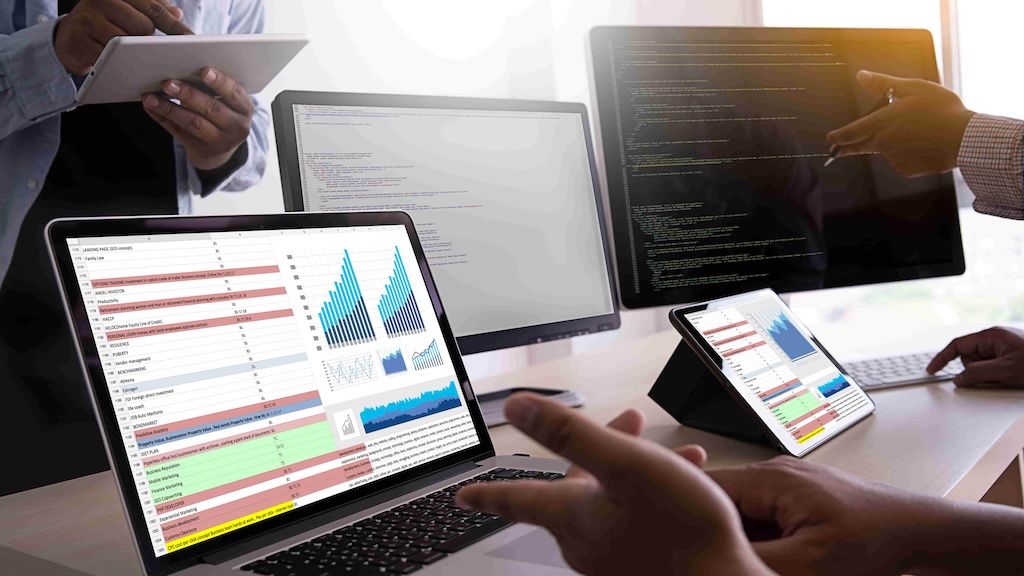How to become a research analyst


Traditionally, most research analysts were employed in the financial services sector. But with the explosion of data that is now available to all industries, data analytics professionals like research analysts are in hot demand.
A recent Australian Government report identified that 5 out of the top 25 emerging occupations in the country involve data analytics. National Skills Commissioner Adam Boyton said, “Data and digital skills are the fastest-growing emerging skills that employers are seeking.”
To help you take advantage of this increased demand for data professionals, here’s our guide on how to become a research analyst in Australia.
What does a research analyst do?
Research analysts help ensure businesses and other organisations have all the information they need to make informed decisions. They do this by:
- identifying and measuring trends in data, such as the cost of goods, trends in markets or customer needs
- analysing the data trends
- preparing and presenting a report outlining how the organisation could use their insights to improve strategies and decisions
A research analyst can provide significant value in a business landscape where change and the unexpected have become the norm. How?
Research analysts use mathematical and statistical models to:
- identify potential business opportunities
- identify potential business threats
- guide investment decisions
- direct improvements in business processes
As you can see, technical skills are a crucial part of the profession.
Technical skills
According to insights from a number of employment websites, research analysts need the following technical skills to generate investment strategies and make investment decisions for your company or clients:
- Strong mathematical and analytical skills
- Knowledge of analytical software and data analytics technologies
- Business intelligence and reporting software
- Recognition of patterns and trends
- Knowledge of database querying languages
- Survey/query software skills
- Data mining, data visualisation and database design skills
- Accounting knowledge
- Financial management skills
Emotional intelligence skills
While the technical aspects of the role are essential, the job isn’t purely number crunching and analysis. You’ll need the following emotional intelligence skills to be able to communicate your findings effectively:
- Communication skills
- Interpersonal skills
- Critical thinking skills
- Exceptional attention to detail
- Time management skills
- Collaboration skills
Typical tasks and responsibilities
A research analyst must fulfil a variety of tasks and responsibilities. According to recruitment platform Betterteam, here are the most essential tasks:
- Trend-spotting and forecasting to improve business operations
- Undertaking market research to identify problems, opportunities, or efficiencies
- Making data-driven recommendations for critical business decisions
- Analysing data to develop and review pricing models
- Presenting recommendations visually to decision-makers
- Data storage and organisation
- Evaluation and improvement of procedures, policies, and protocols
For those working in market research analytics, a more marketing-focused subset of research analytics, Betterteam notes that key tasks and responsibilities include:
- Trend monitoring and forecasting in marketing and sales
- Developing marketing plans in collaboration with the marketing team
- Market conditions research
- Conducting market research to understand consumer preferences to inform pricing strategies and the potential impacts of marketing and distribution strategies
- Monitoring marketing programs' effectiveness
- Designing and evaluating methods to collect data
- Using data analytics and statistical software to identify relevant findings
- Creating graphs, charts and other visual aids to make complex data easier to understand
- Internal and external reporting

How to become a research analyst
According to Glassdoor, research analysts typically used to work in the financial services sector. However, now that data is widely available in every industry, the term ‘research analyst’ is more akin to what was traditionally known as a ‘data analyst’.
Demand for data analysts in Australia is strong. According to recruitment website SEEK, the projected job growth for data analysts is 27.5 per cent in the next five years.
Salary-wise, the typical Australian research analyst is paid $85k per year. For those interested in consumer research jobs, Australia’s typical market research analyst salary ranges between $60k and $90k per year.
Given the growing importance of research and data analytics, becoming a research analyst in Australia is a strategic career decision. If you want to work in an in-demand profession with solid growth prospects, here are the steps to becoming a research analyst.
1. Obtain a high-quality, relevant tertiary qualification. Most research analysts hold a minimum of a business course in a relevant field, such as:
- Mathematics
- Economics
- Business
- Statistics
- Computer science
- Information technology
If you plan to work in the financial services sector, you may consider holding an undergraduate degree with coursework in:
- Finance
- Business administration
- Economics
- Accounting
- Data science
If you plan to work as a market research analyst, you may consider holding an undergraduate degree in:
- Marketing
- Business Administration
- Commerce
- Psychology
2. Get experience in the workplace. On-the-job experience is invaluable to growing your knowledge and skills. It can also help give you a competitive edge to secure entry-level research analyst roles.
3. Consider getting a master's degree or a relevant certification. Once you have enough work experience and wish to progress in your career, you might consider earning qualifications pertinent to your industry.
For example, if you’re a research analyst working in the financial services sector, you might consider one of the following:
- Studying a master’s degree, such as an Master of Business Administration (MBA)
- Pursuing a Chartered Financial Analyst (CFA) credential through the CFA Institute

If you’re interested in advancing to a senior research analyst position, having a postgraduate qualification will add value to your career.
Studying a Master of Business Administration is an excellent choice if you want to:
- Strengthen your leadership and strategic thinking in your current role
- Advance into senior management or executive positions
- Broaden your business knowledge while developing specialised skills in areas like business analytics, digital marketing or technology management
While there are many postgraduate options for career advancement, UTS Online’s Master of Business Administration stands out for its focus on practical, future-focused learning and its flexibility for working professionals.
Why study an MBA? Because UTS Online’s Master of Business Administration is designed to equip you with the leadership, commercial and analytical skills required to thrive in complex, fast-changing business environments. It goes beyond traditional business theory to give you real-world insights and skills you can immediately apply at work.
For example, you’ll study subjects like Data-Driven Decision-Making, Strategy and Negotiation and Leading People and Change, all of which prepare you to lead with confidence, make informed decisions and create value in any industry or function.
As part of this degree, you can choose to tailor your learning with electives or specialisations in key areas such as:
- Business Analytics, where you’ll build capability in interpreting and applying data for strategic decisions
- Digital Marketing, to explore consumer behaviour and digital engagement strategies
- Financial Fundamentals, helping you assess and plan for business performance
Graduates of the UTS Online MBA are well-placed to pursue senior roles such as:
- Business Director
- Strategy Manager
- Operations Lead
- Senior Consultant
- General Manager
- as well as many others
Advance your research analytics career
Take the next step in your research analytics career by studying a Master of Business Administration at UTS Online.
The course is 100 per cent online with no on-campus commitments. That means you’ll have the flexibility to study whenever and wherever works best for you.
And for ongoing support throughout your study journey, you’ll always have access to a dedicated Student Support Advisor.





